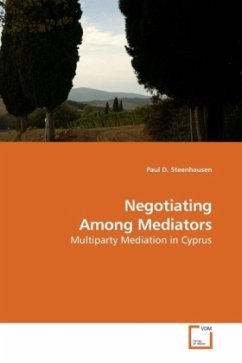Although international violent conflicts are commonly mediated by multiple third parties, relatively little scholarship exists on the phenomenon. This book focuses on four major, but understudied, aspects of multiparty mediation: (1) the coalition-building process that transforms a conflict from a single-party to a multiparty effort; (2) the conditions under which coordination among mediators is more or less likely; (3) the varying strategies and tactics they opt to use when negotiating with each other, as well as with the disputants; and (4) how these factors influence the outcome of conflicts. Using the Cyprus conflict as a case study and verbal negotiation theory as a conceptual framework, this study ascertains and compares the perceptions, behaviors, and interactions of various third parties -- including the United States, Great Britain, and United Nations -- during three international crises. In so doing, a new concept and several new hypotheses are generated, which can be applied to other conflicts for purposes of generalization.








